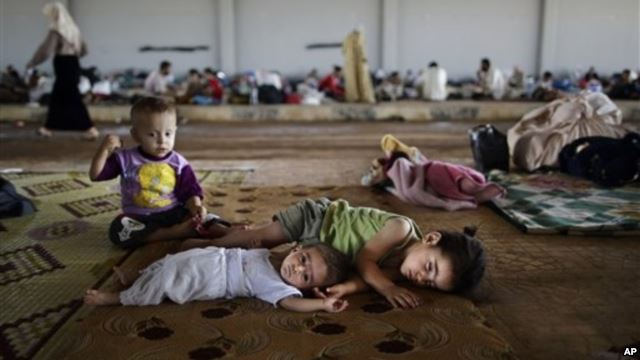Asia
Syria’s lost generation

Image:VOA News
It has been more than five years since the beginning of the Syrian Civil War. In that time, millions of people have been displaced, driven from their homes to refugee camps in the nearby countries of Turkey, Jordan, and Lebanon, or have taken to rickety boats in an attempt to reach Europe. Those who have settled into these camps have endured significant hardships as they struggle to survive in difficult conditions. In many cases, it is the children of Syria who have suffered most. Now, humanitarian organizations are predicting an even worse and more far-reaching consequence of this war: an entire generation of children who have never had access to primary schooling. A new report issued by Save the Children suggests that more than 50% of Syrian children are not currently enrolled in school.
The conflict has not only displaced Syria’s children into refugee camps with limited schooling options, but schools in the war-torn areas of Syria have already been abandoned or repurposed by military groups. With the end of the war nowhere in sight, it is unclear when these children of Syria may be able to resume their education, though evidence suggests that such a significant delay in providing basic education at such a sensitive part of a child’s development may have lifelong impacts on their capacity to learn.
In addition, the lack of schooling opens up these children to a life-long risk of other negative outcomes. Child-marriage, already a problem in refugee camps where families look to send their daughters to live with others who can provide for them, is more likely for children who have not been enrolled in school. There is also the risk that children who are not in school are more likely to perform dangerous labor for little money, a situation that is also very widespread in refugee camps.
Observers of the conflict also suggest that the lack of an educated workforce will make the eventual reconstruction of Syria more difficult. Some estimate that the annual loss in GDP due to a shrinking population of educated workers will total into the billions.
Many groups are suggesting that funds be made available to provide access to primary and secondary education inside the refugee camps. However, progress on this front has been painfully slow. At the moment, the fact that half of all Syrian children do not have access to education is an untenable situation that will result in long-lasting and devastating consequences for Syria and the entire region.





0 comments